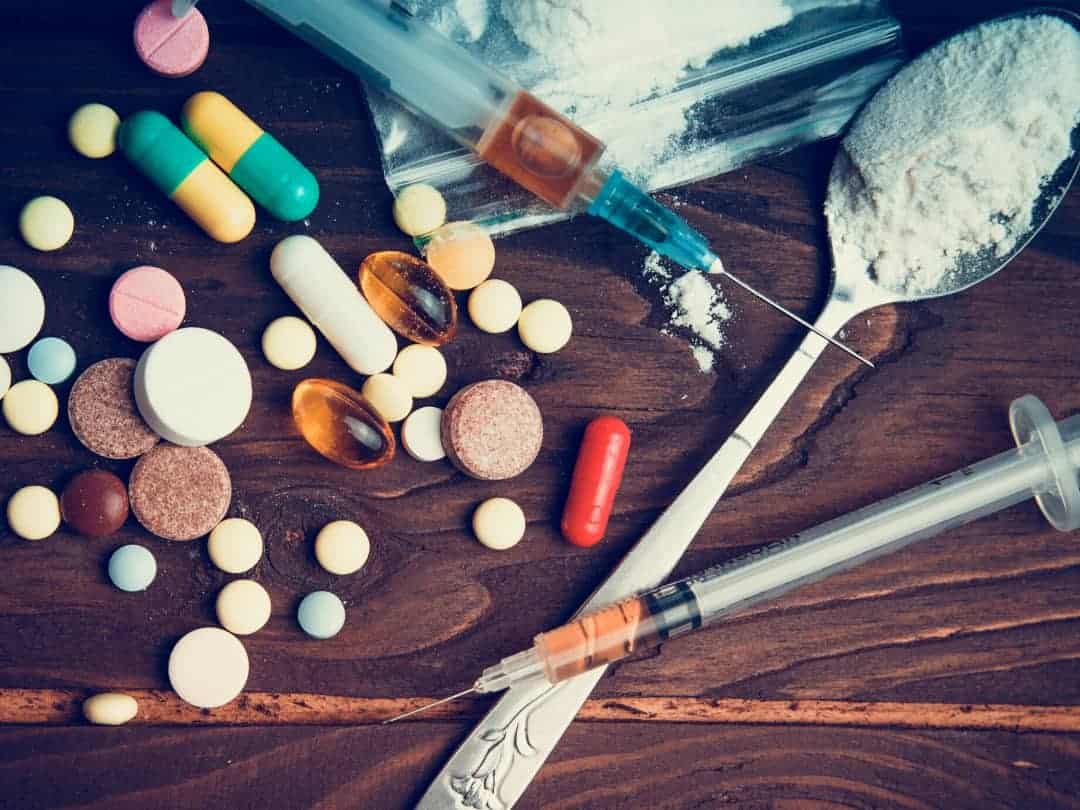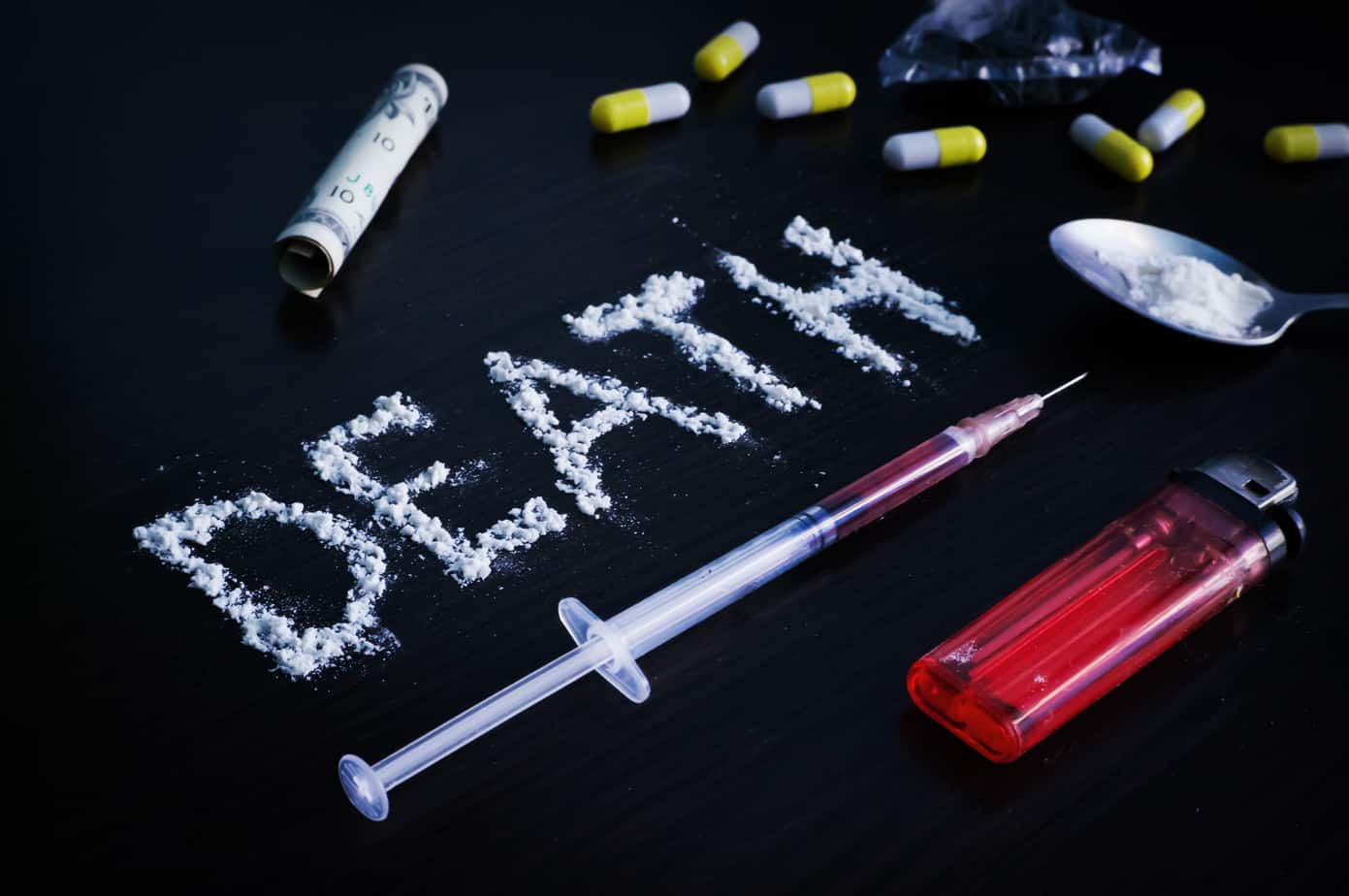What Is Crack Cocaine?
Crack cocaine is made of cocaine hydrochloride that has been processed with baking soda or ammonia and water into a form called “freebase”. The mixture is cooled and filtered, and the “chips, chunks, or “rocks” are smoked in a crack pipe. Is there a difference between cocaine and crack cocaine? There are no pharmacological differences between powder cocaine and crack cocaine. This means that, chemically, they are nearly identical and produce similar results. Around 72 percent of cocaine-related drug treatment admissions are due to crack cocaine [1]. This is a startlingly high statistic considering the harmful crack effects. Treating a crack addiction may involve crack detox and therapy. Treatment may occur in hospitals, in therapeutic communities, or in clinical settings.
Can you overdose from smoking crack? Yes. Crack cocaine is highly addictive; once a cocaine addiction is present, the problems stack up exponentially. Smoking crack is a dangerous route of administration by itself, simply because of how the drug enters the system. An unintentional crack overdose can be common and is almost always caused by the urge for a stronger “high”.
Crack cocaine can cause damage to mental health. There is a strong link between cocaine and depression which appears in the form of mood or emotional disturbances [2]. Because the drug directly interferes with dopamine being reabsorbed by neurons, one of the symptoms of a crack cocaine comedown is severe depression. Addiction to crack is a chronic condition that will be with the user for life. Addiction recovery is possible, and help is out there. If you or a loved one suffers from a crack addiction, please seek help.
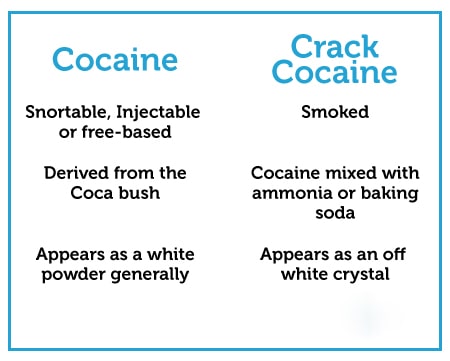
Get Help. Get Better. Get Your Life Back.
Searching for Accredited Drug and Alcohol Rehab Centers Near You?
Even if you have failed previously and relapsed, or are in the middle of a difficult crisis, we stand ready to support you. Our trusted behavioral health specialists will not give up on you. When you feel ready or just want someone to speak to about therapy alternatives to change your life call us. Even if we cannot assist you, we will lead you to wherever you can get support. There is no obligation. Call our hotline today.
(844) 597-1011Is Crack Addictive?
Crack is a severely addictive drug. It increases the natural chemical messenger (dopamine) levels in brain circuits related to controlling movement and reward. Why is crack so addictive? As with other drugs, repeated use of crack cocaine can cause long-term changes in the brain’s reward circuit and other brain systems, leading to addiction. The reward circuit eventually adapts to the extra dopamine caused by the drug, becoming steadily less sensitive to it. As a result, people take stronger and more frequent doses to feel the same high they did initially and to obtain relief from withdrawal.
However, other additional factors can make addiction more likely. These factors include:
- Genetics: Gene differences in the brain’s natural opiate system the brain is linked to cocaine use.
- Co-Occurring Disorders: Disorders like mood problems are linked to more drug use.
- Environmental Influence: Lack of supervision and availability of drugs are risk factors for drug use.
- Gateway Substances: Other illicit substances are linked to more drug use.
- Psychological Factors: A history of aggressive behavior is a risk factor for drug use.
How Addictive is Crack?
A crack cocaine is a powerful form of cocaine that can be smoked. Smoking delivers higher doses to the brain and produces a more rapid response than taking cocaine powder. After taking the drug for a period of time, you will begin to lack the will to control your intense physical and psychological compulsion for more and more hits.
There are always telling psychological, physiological, and behavioral changes in people who smoke crack. This is mainly due to the drug’s fast-acting nature and its effects on brain chemistry and different body organs. One obvious trait in crack users is an abnormal switch from excitement to dullness.
Crack cocaine spikes the chemicals responsible for pleasure and euphoria in the brain and affects the reward system. When these chemicals are spiked, they cause intense “highs” which last for a very short period, usually 5 to 10 minutes. To recreate these feelings as much as possible, users repeatedly consume the drug in higher doses, causing the brain to become dependent on it.
Once the brain begins to rely on the presence of crack cocaine, you’ll feel uncomfortable without the drug, prompting you to compulsively seek out crack cocaine and spend all you have on acquiring it. In addition, crack is more potent than regular powdered cocaine because it is smoked. It’s also cheaper but can destroy your finances because you’ll need to renew your dosage regularly to maintain the effects of the drug.

Get Your Life Back
Find Hope & Recovery. Get Safe Comfortable Detox, Addiction Rehab & Dual Diagnosis High-Quality Care.
Hotline(844) 597-1011Signs of a Crack Addicted
Crack addiction refers to a substance use disorder where the person is physiologically dependent on crack; they lose control over their use and continue to use the crack despite negative consequences. Approximately 1.3 million people in the United States over the age of 12 have a cocaine use disorder, which means they use cocaine or crack.
The following are some of the signs and symptoms of a crack cocaine addiction:
- Experiencing intense cravings for the drug
- Needing to take the drug to feel “normal”
- Using more of the drug to achieve the same effect
- Losing control over one’s crack consumption
- Continuing to use crack cocaine despite the harm it causes
- Willing to do anything to get more crack cocaine
- Experiencing crack withdrawal symptoms, such as fatigue, irritability, sluggishness, increased appetite, depression, and insomnia when the high wears off
Moreover, people who are addicted to crack cocaine may also experience the following:
- Severe depression
- Insomnia
- Weight loss
- Lack of interest in their work, friends, and family
- Lack of attention to personal hygiene
- Negative consequences to their job, relationships, and daily life
- Loss of control over their life
- Considerable expenditure to fund their habit
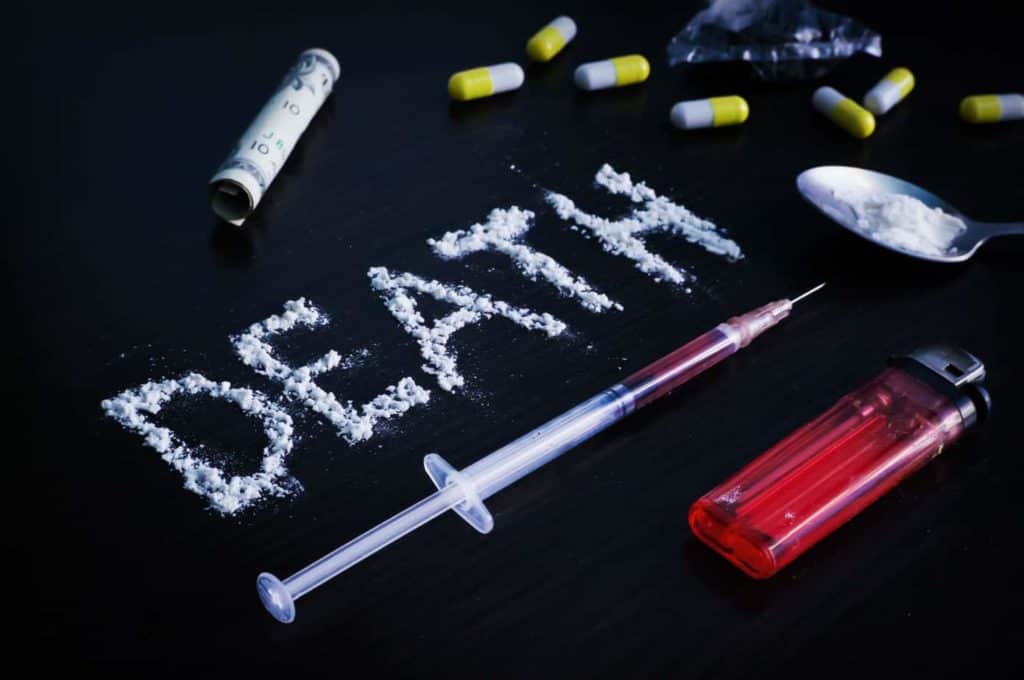
First-class Facilities & Amenities
World-class High-Quality Addiction & Mental Health Rehabilitation Treatment
Rehab Centers TourRenowned Addiction Centers. Serene Private Facilities. Inpatient rehab programs vary.
Addiction Helpline(844) 597-1011Proven recovery success experience, backed by a Team w/ History of:
15+
Years of Unified Experience
100s
5-Star Reviews Across Our Centers
10K
Recovery Success Stories Across Our Network
- Low Patient to Therapist Ratio
- Onsite Medical Detox Center
- Comprehensive Dual-Diagnosis Treatment
- Complimentary Family & Alumni Programs
- Coaching, Recovery & Personal Development Events
Crack Withdrawal
A person addicted to crack cocaine who has developed a physical and psychological dependence on it may experience cocaine withdrawal symptoms when quitting. During cocaine withdrawal, the former crack user will often experience many uncomfortable symptoms, such as paranoia, depression, fatigue, mood swings, anxiety, restlessness, agitation, or vivid, unpleasant dreams. The psychological and physical symptoms of crack withdrawal will vary depending on many individual factors, such as the user’s tolerance, metabolism, length of addiction, severity of addiction, and the presence of underlying mental health conditions or other addictions.
How Long Does It Take To Detox From Crack?
Crack cocaine detox can be devided into two stages, the total of which typically lasts more than a week. There are two primary stages of crack detox: acute crack withdrawal and post-acute withdrawal. Acute crack withdrawal is the stage that we typically associate with physical symptoms. Crack withdrawal symptoms often include intense cravings, hunger, irritability, paranoia, and psychosis. For most individuals, acute withdrawal from crack cocaine use lasts seven to ten days, if it takes place in a crack detox center under medical supervision.
Crack cocaine directly affects your brain chemistry, particularly the reward center of your brain and the production of dopamine. It can take many months for the brain to adjust to life without the effects of crack use. This is called post-acute withdrawal symptoms (PAWS). During this time, you may struggle with psychological crack withdrawal symptoms, including depression, mood swings, anxiety, and suicidal thoughts.
If you receive proper therapy and healthcare, it is possible to limit post-acute withdrawal symptoms (PAWS). However, without help from a qualified crack detox treatment center, it is also possible that your symptoms may take a prolonged time to resolve fully.
World-class, Accredited, 5-Star Reviewed, Effective Addiction & Mental Health Programs. Complete Behavioral Health Inpatient Rehab, Detox plus Co-occuring Disorders Therapy.
CALL(844) 597-1011End the Addiction Pain. End the Emotional Rollercoaster. Get Your Life Back. Start Drug, Alcohol & Dual Diagnosis Mental Health Treatment Now. Get Free No-obligation Guidance by Substance Abuse Specialists Who Understand Addiction & Mental Health Recovery & Know How to Help.
Crack Detox Timeline
Once a person stops using crack there are predictable patterns that characterize the post-cessation period:
0-72 hours
The period between the first hours to three to four days after the last dose is known as the “crash” period and is defined by the presence of symptoms such as fatigue, anxiety, sleepiness and intense cravings. The person may also feel depressed and have suicidal thoughts, so being surrounded by medical professionals and or close friends and family is highly advised.
Weeks 1-2
Compulsive behavior persists in the first two weeks after quitting crack cocaine but decreases as days pass by. During this period, the brain struggles to adjust to the absence of cocaine, and severe cravings can be triggered by thoughts, behaviors, or smells. As a result, individuals may manifest hostile and impulsive behavior and feel moody and irritated. They could also have problem concentrating, increased appetite and experience vivid dreams.
Weeks 3-4
This stage is known as the honeymoon phase. Crack cocaine cravings gradually reduce, and mood improves. Individuals feel confident, energetic and full of optimism. They want to go back to everyday life, feeling as if they have kicked the habit. However, it has been estimated that two-thirds of relapse in crack cocaine abuse cases take place within three months post-crack detox treatment. Further, the treatment of protracted withdrawal symptoms (PAWS) should not be disregarded as this is another critical point when relapse is very likely to happen. For these reasons, ongoing psychological treatment is crucial after acute crack detox occurs.
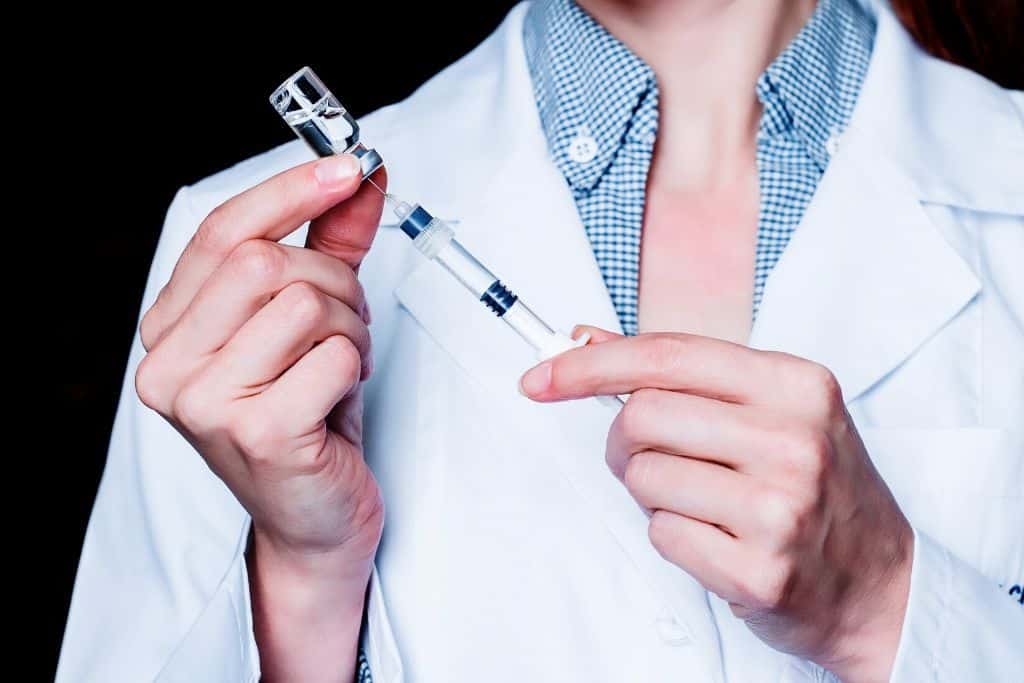
Detox from Crack
Clinicians diagnose crack addiction, The diagnostic process could involve:
- A physical examination
- A detailed medical history
- A series of screening questions
The clinician will evaluate whether the person meets the criteria listed for addiction in the Diagnostic and Statistical Manual of Mental Disorders (DSM), a guiding manual published by the American Psychiatric Association.
Physicians at drug treatment facilities develop crack detox strategies based on the person’s medical history and unique body chemistry. Unlike some other drugs, including prescription anti-anxiety medications, Crack isn’t tapered down during crack detox. Users quit cold turkey under medical supervision, with medications to help counteract uncomfortable crack withdrawal symptoms.
Experience Transformative Recovery at We Level Up Treatment Centers.
See our authentic success stories. Get inspired. Get the help you deserve.
Start a New Life
Begin with a free call to an addiction & behavioral health treatment advisor. Learn more about our dual-diagnosis programs. The We Level Up Treatment Center Network delivers recovery programs that vary by each treatment facility. Call to learn more.
- Personalized Care
- Caring Accountable Staff
- World-class Amenities
- Licensed & Accredited
- Renowned w/ 100s 5-Star Reviews
We’ll Call You
Treatment for Crack Cocaine Addiction
First and foremost, if you think that a loved one is abusing crack, you should first research the drug and addiction associated with it so that you can better understand what your loved one needs. Next, you must plan an intervention to provide your loved ones with options to battle their addiction in a safe and supportive environment. During this intervention, make sure that you offer compassion and support instead of judgment.
Lastly, offer your support throughout the entire treatment process. In addition, crack overdose can have severe physical and psychological effects, so it is essential to seek treatment as soon as possible. Inpatient drug rehab offers intensive care that can help you get through the early stages of withdrawal promptly. Since crack is usually smoked, you might want to know “what does cocaine smell like? We’ve learned how it can be cut with fentanyl and rat poison which can lead to overdose and death, so it is important not to smell or taste it just to test its purity.
Learning how to leave a crack addict is not an easy decision but you must face it once it’s there. Crack effects are devastating not only to the person but also to the whole family. Addiction is a family disease.
Crack Cocaine Detox Treatment
Medical crack detox is often considered the first stage of treatment. It will help you navigate the complicated process of crack withdrawal, but it doesn’t address patterns of thought and behavior that contribute to crack use. Various treatment approaches and settings can help provide the ongoing support necessary to maintain long-term sobriety after you complete crack detox.
Cravings are very common during detox and can be challenging to overcome. This often leads to relapse. Constant medical care provided during inpatient treatment helps prevent relapse. Clinicians can provide necessary medication and medical expertise to lessen cravings and the effects of crack withdrawals.
Psychotherapy
Several different modalities of psychotherapy have been used in the treatment of mental health disorders along with addiction, including:
- Cognitive Behavioral Therapy (CBT) – is an effective treatment that involves making changes in both the patterns of negative thoughts and the behavioral routines which are affecting the daily life of the depressed person for various forms of depression.
- Dialectical Behavior Therapy – is a comprehensive mental health and substance abuse treatment program whose ultimate goal is to aid patients in their efforts to build a life worth living. The main goal of DBT is to help a person develop what is referred to as a “clear mind.”
- Solution Focused Therapy – is an approach interested in solutions that can be quickly implemented with a simple first step leading to further positive consequences.
Dual Diagnosis Treatment
Drug abuse and mental health disorders often co-occur. In many cases, traumatic experiences can result in a mental health disorder and substance abuse. Dual diagnosis rehabilitation treats both of these issues together. The best approach for the treatment of dual diagnosis is an integrated system. This strategy treats both the substance abuse problem and the mental disorder simultaneously. Regardless of which diagnosis (mental health or substance abuse problem) came first, long-term recovery will depend largely on the treatment for both diseases done by the same team or provider.
Medication-Assisted Treatments
Medication-Assisted Treatments (MAT) for substance use and mental health disorders are commonly used in conjunction with one another. This includes the use of medications and other medical procedures. During your rehab, the staff from your treatment facility will help you identify what caused your addiction and teach you skills that will help you change your behavior patterns and challenge the negative thoughts that led to your addiction. Sometimes, the pressures and problems in your life lead you to rely on substances to help you forget about them momentarily.
Please, do not try to detox on your own. The detox process can be painful and difficult without medical assistance. However, getting through the detox process is crucial for continued treatment. We Level Up provide proper care with round-the-clock medical staff to medically assist your recovery. So, reclaim your life, and call us to speak with one of our treatment specialists. Our counselors know what you are going through and will answer any of your questions.

Search Florida Rehab Centers & Other Resources
Sources:
[1] NIDA – https://nida.nih.gov/publications/drugfacts/cocaine
[2] NIDA – https://nida.nih.gov/drug-topics/trends-statistics/overdose-death-rates
[3] What Is Cocaine Made Of? – We Level Up NJ



